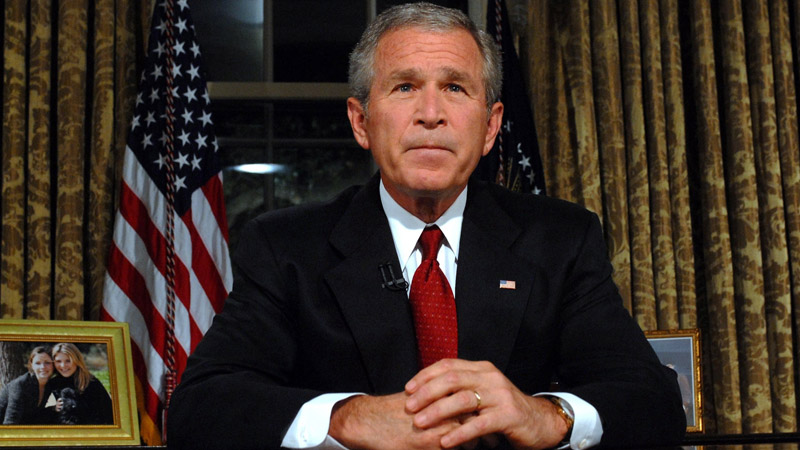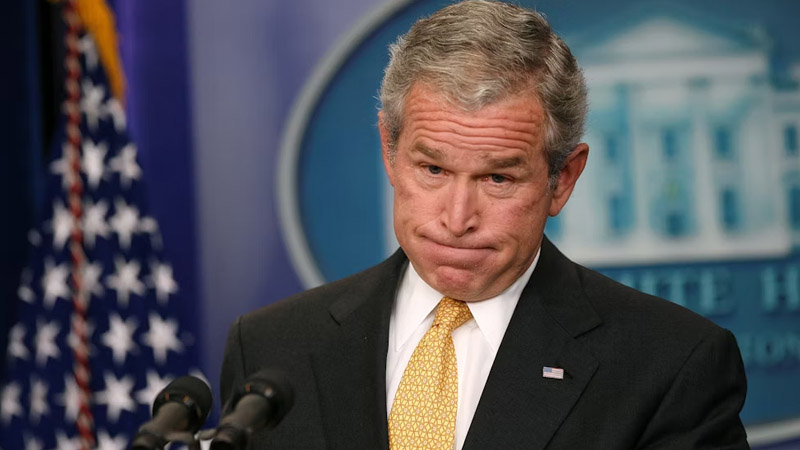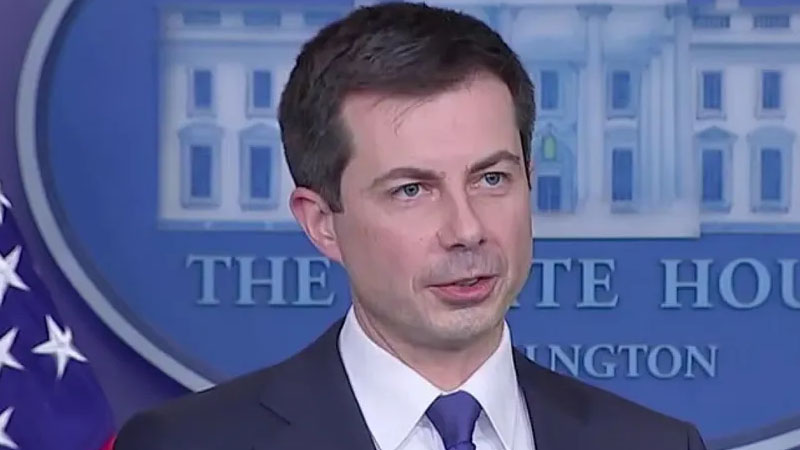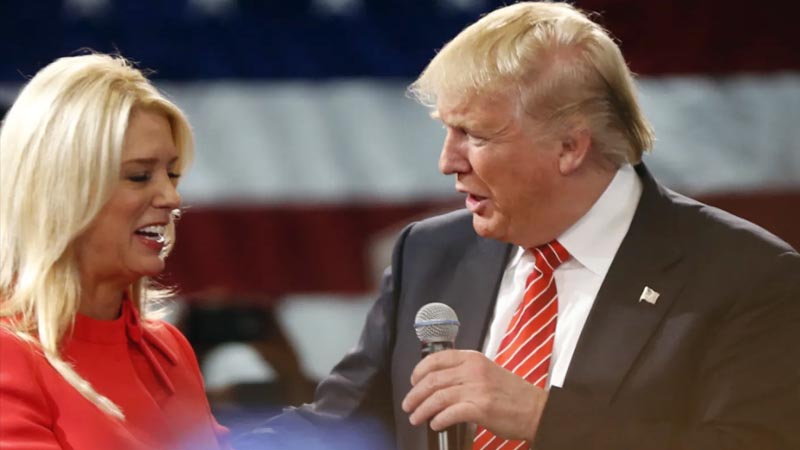“Bush Owes It to the Country to Condemn Trumpism”: Columnist Demands Apology from Former President

Getty Images / Pool
In a charged op-ed for The Washington Post, columnist Matt Bai called upon former President George W. Bush to publicly address and apologize for what he claims is Bush’s role in paving the way for former President Donald Trump’s rise to power.
With the upcoming election bringing fresh scrutiny to the legacy of conservative leaders, Bai urged Bush to finally break his silence, echoing the condemnation of Trumpism voiced by other prominent conservatives, including his own daughter, Barbara Bush, and Liz Cheney, daughter of former Vice President Dick Cheney.
“Bush owes it to the country to condemn Trumpism at this moment because, of all our former leaders, he did the most to create it,” Bai argued. “He ought to take this chance to get right with history because history will almost certainly get rough with him.” Bai’s pointed words suggest that Bush’s legacy may ultimately be tarnished if he does not reckon with what Bai sees as the political fallout from his presidency.
Bai’s critique hinges on the idea that Bush-era policies, marked by the Iraq War, an inadequate response to Hurricane Katrina, and a financial collapse following years of deregulation, contributed to a deep mistrust of American institutions — fertile ground, Bai suggests, for Trump’s populist and anti-establishment rhetoric.
These crises, Bai contends, fractured the trust of the American people in their government and the Republican party, setting the stage for a new wave of conservative radicalization. “Trump didn’t spring from nowhere,” Bai wrote. “He was, and is, a vehicle of fury and lost faith. If compassion doesn’t work, then maybe cruelty will.

If governing in a democracy means inventing wars and bailing out banks at the expense of soldiers and laid-off workers, then maybe the democratic system itself needs to be demolished.” In this view, Trump is portrayed not as an anomaly but as the natural outcome of a political climate shaped by Bush’s failures and the resentment they sowed.
Bai describes Trump as an “opportunistic entertainer” who seized on the public’s disillusionment with the government, amplifying their fears and frustrations. Meanwhile, he casts Bush as a leader whose policy choices, from initiating the Iraq War to navigating the Great Recession, have left a lasting impact.
Bai criticizes Bush for “raising the curtain and focusing the spotlight” on the kind of divisive, fear-driven politics that Trump would later exploit. “Bush must know on some level, too, the verdict history will render,” Bai concludes. “That his failures led us to the brink of dissolution, that from the swamp of his presidency sprang the twin-headed monster of nativism and isolationism.”
According to Bai, Bush’s silence on Trumpism could ultimately condemn him in the eyes of history, which may judge him as complicit in the current political divisions. Bai’s call for Bush to speak out is not just a demand for accountability but a plea for Bush to take a stand before the November election, aligning himself with those warning against Trump’s influence on American politics.
As the election approaches, the call for Bush’s apology reflects a broader demand for accountability from past leaders. Bai’s argument highlights a growing expectation for those who held power to speak out on the implications of their actions and address how their legacies have shaped the political landscape.


